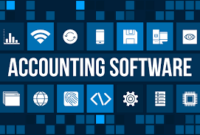Understanding the Role of an Android App Developer
1. Introduction to Android App Development
In today’s digital age, the demand for mobile applications continues to soar, with Android leading the way. An Android app developer specializes in creating applications for devices that run on the Android operating system, which powers over 70% of the world’s smartphones. As an Android app developer, one must possess a unique blend of technical skills and creativity to design, develop, and maintain applications that are both functional and appealing to users.
1.1 What is Android App Development?
Android app development is the process of creating software applications that run on the Android platform. These applications can range from simple games to complex enterprise solutions. The development process involves several stages, including planning, design, coding, testing, and deployment. Android developers use programming languages such as Java and Kotlin to build these apps, leveraging the Android Software Development Kit (SDK) to access the platform’s features and capabilities.
1.2 Importance of Android Apps in Today’s Market
The importance of Android apps cannot be overstated. With millions of apps available on the Google Play Store, they serve various purposes, including entertainment, education, and business. Businesses, in particular, recognize the value of mobile applications in reaching customers, enhancing brand visibility, and providing services at their fingertips. A well-designed Android app can significantly improve customer engagement and retention, driving sales and growth.
1.3 Overview of the Android Ecosystem
The Android ecosystem is vast and diverse, encompassing not just smartphones but also tablets, smartwatches, and even smart TVs. With such a wide range of devices, Android developers must consider different screen sizes, resolutions, and hardware capabilities when designing applications. Additionally, Android is an open-source platform, allowing developers to customize their apps and access a wide array of libraries and tools to enhance functionality.
2. Skills and Qualifications Required for an Android App Developer
To excel as an Android app developer, one must possess a diverse skill set that encompasses technical knowledge, creative abilities, and problem-solving capabilities. Here are some of the essential skills and qualifications needed:
2.1 Educational Background
While formal education is not always required, having a degree in computer science, software engineering, or a related field can provide a strong foundation. Many successful Android developers also pursue online courses and certifications to gain specialized knowledge in Android development. Understanding the principles of software engineering, algorithms, and data structures is crucial for developing efficient applications.
2.2 Proficiency in Programming Languages
The primary languages used in Android development are Java and Kotlin. Java has been the traditional language for Android development, but Kotlin is now the preferred choice due to its modern features and interoperability with Java. Proficiency in these languages allows developers to write clean, efficient, and maintainable code.
2.3 Familiarity with Android SDK and Tools
An Android app developer must be well-versed in using the Android Software Development Kit (SDK) and development tools such as Android Studio. The SDK provides the necessary libraries and APIs for building Android applications, while Android Studio offers an integrated development environment (IDE) with powerful features to streamline the development process.
2.4 Understanding of UI/UX Design Principles
Creating user-friendly applications is vital for success in the competitive app market. Developers should have a solid understanding of UI (User Interface) and UX (User Experience) design principles to ensure that their applications are not only functional but also visually appealing and easy to navigate. Familiarity with design guidelines provided by Google, such as Material Design, can greatly enhance the usability of apps.
2.5 Problem-Solving Skills
Android app development often involves troubleshooting and debugging code to resolve issues that arise during the development process. Strong problem-solving skills are essential for identifying bugs, optimizing performance, and implementing effective solutions. Developers should be able to think critically and creatively to overcome challenges that may arise.
2.6 Communication and Collaboration
Many Android developers work in teams, collaborating with designers, project managers, and other stakeholders. Effective communication skills are crucial for understanding project requirements, discussing ideas, and providing updates. Being able to collaborate efficiently enhances the overall development process and leads to better outcomes.
3. Steps to Become an Android App Developer
Embarking on a career as an Android app developer involves a series of strategic steps that can help aspiring developers gain the necessary skills and experience. Here’s a roadmap to guide you through the process:
3.1 Start with the Basics of Programming
If you’re new to programming, the first step is to learn the fundamentals. Start with basic programming concepts such as variables, control structures, data types, and object-oriented programming. You can find numerous resources, including online courses, textbooks, and coding bootcamps, that cater to beginners. Popular programming languages to begin with include Java and Python, which will provide a solid foundation for understanding Android development.
3.2 Learn Java and Kotlin
Once you grasp the basics of programming, dive deeper into the two primary languages used for Android development: Java and Kotlin. Java has been the cornerstone of Android development for years, while Kotlin has gained popularity due to its concise syntax and modern features. Numerous online platforms, such as Udemy, Coursera, and Codecademy, offer courses specifically focused on these languages. Practice coding regularly to reinforce your learning.
3.3 Familiarize Yourself with Android Development Tools
Next, familiarize yourself with the Android SDK and Android Studio. The Android SDK includes libraries, tools, and documentation to help you develop Android applications. Android Studio, the official IDE for Android development, provides a user-friendly interface for coding, debugging, and testing your apps. Explore tutorials and documentation to understand how to navigate these tools effectively.
3.4 Build Your First Android App
Start by building a simple Android application. This hands-on experience is crucial for solidifying your knowledge and skills. Choose a project that interests you, such as a to-do list app or a weather app. Utilize online resources, such as GitHub repositories and YouTube tutorials, to guide you through the development process. Building your first app will not only enhance your skills but also give you a tangible project to showcase in your portfolio.
3.5 Explore Advanced Topics
Once you have a firm grasp of the basics, delve into more advanced topics in Android development. This includes understanding architecture patterns like MVVM (Model-View-ViewModel), working with APIs for data retrieval, implementing databases using SQLite or Room, and incorporating third-party libraries. Explore concepts such as testing, debugging, and performance optimization to enhance your development capabilities.
3.6 Create a Portfolio
As you complete projects, compile them into a portfolio that showcases your skills and experience. A well-organized portfolio not only highlights your technical abilities but also demonstrates your creativity and problem-solving skills. Include links to your GitHub repositories, a description of each project, and the technologies used. A strong portfolio can significantly enhance your job prospects and attract potential employers.
3.7 Gain Practical Experience
Consider internships or freelance opportunities to gain practical experience in real-world projects. These experiences will provide valuable insights into the development process and help you build connections in the industry. Participate in coding competitions, hackathons, or open-source projects to further hone your skills and network with other developers.



